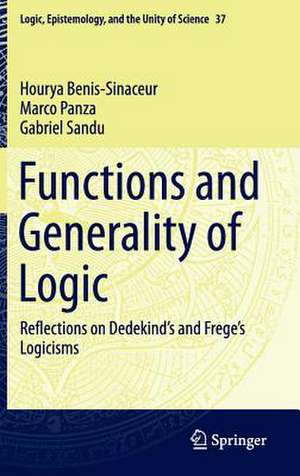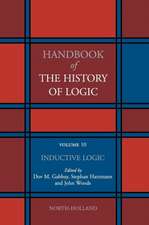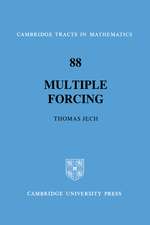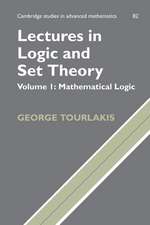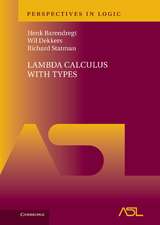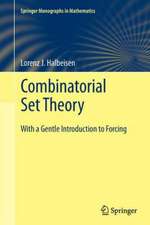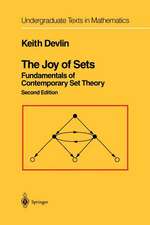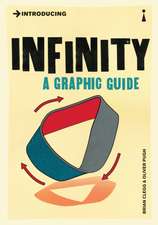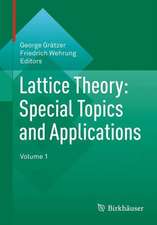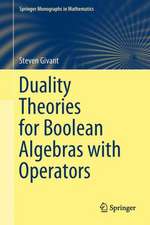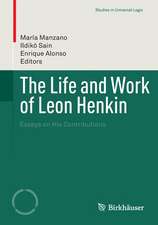Functions and Generality of Logic: Reflections on Dedekind's and Frege's Logicisms: Logic, Epistemology, and the Unity of Science, cartea 37
Autor Hourya Benis-Sinaceur, Marco Panza, Gabriel Sanduen Limba Engleză Hardback – 9 iul 2015
Din seria Logic, Epistemology, and the Unity of Science
-
 Preț: 1225.35 lei
Preț: 1225.35 lei - 18%
 Preț: 1233.06 lei
Preț: 1233.06 lei - 18%
 Preț: 1001.32 lei
Preț: 1001.32 lei - 18%
 Preț: 945.62 lei
Preț: 945.62 lei - 18%
 Preț: 1235.25 lei
Preț: 1235.25 lei - 18%
 Preț: 1224.06 lei
Preț: 1224.06 lei - 18%
 Preț: 955.70 lei
Preț: 955.70 lei - 15%
 Preț: 644.95 lei
Preț: 644.95 lei - 24%
 Preț: 1058.21 lei
Preț: 1058.21 lei - 20%
 Preț: 558.62 lei
Preț: 558.62 lei - 24%
 Preț: 878.91 lei
Preț: 878.91 lei - 18%
 Preț: 1236.99 lei
Preț: 1236.99 lei - 24%
 Preț: 896.28 lei
Preț: 896.28 lei - 24%
 Preț: 791.24 lei
Preț: 791.24 lei - 24%
 Preț: 727.48 lei
Preț: 727.48 lei - 24%
 Preț: 789.89 lei
Preț: 789.89 lei - 20%
 Preț: 561.67 lei
Preț: 561.67 lei - 20%
 Preț: 560.30 lei
Preț: 560.30 lei - 20%
 Preț: 568.73 lei
Preț: 568.73 lei - 24%
 Preț: 1046.20 lei
Preț: 1046.20 lei - 24%
 Preț: 698.16 lei
Preț: 698.16 lei - 20%
 Preț: 549.89 lei
Preț: 549.89 lei - 18%
 Preț: 958.73 lei
Preț: 958.73 lei - 20%
 Preț: 580.52 lei
Preț: 580.52 lei - 20%
 Preț: 550.76 lei
Preț: 550.76 lei
Preț: 366.69 lei
Nou
Puncte Express: 550
Preț estimativ în valută:
70.19€ • 73.74$ • 58.99£
70.19€ • 73.74$ • 58.99£
Carte tipărită la comandă
Livrare economică 08-14 martie
Preluare comenzi: 021 569.72.76
Specificații
ISBN-13: 9783319171081
ISBN-10: 3319171089
Pagini: 150
Ilustrații: XXI, 125 p.
Dimensiuni: 155 x 235 x 15 mm
Greutate: 0.39 kg
Ediția:2015
Editura: Springer International Publishing
Colecția Springer
Seria Logic, Epistemology, and the Unity of Science
Locul publicării:Cham, Switzerland
ISBN-10: 3319171089
Pagini: 150
Ilustrații: XXI, 125 p.
Dimensiuni: 155 x 235 x 15 mm
Greutate: 0.39 kg
Ediția:2015
Editura: Springer International Publishing
Colecția Springer
Seria Logic, Epistemology, and the Unity of Science
Locul publicării:Cham, Switzerland
Public țintă
ResearchCuprins
Chapter 1: Is Dedekind a logicist?; Hourya Benis Sinaceur.- Chapter 2: Functions and Expressions; Marco Panza.- Chapter 3: Frege, Russell, Ramsey on arbitrary functions; Gabriel Sandu.
Recenzii
“This book brings together three independently written but complementary contributions on logicism by three experienced specialists. … All in all, the book contributes to an enhanced understanding of the nature, the motives, and the mutual differences between various forms of logicism. … The book provides highly interesting advanced reading for anyone concerned with the systematic and historical details of logicism. It also includes a shared introduction for all three chapters.” (Risto Vilkko, Mathematical Reviews, February, 2016)
“The aim of the book is to shed some light onto the roots of logicism, especially in Frege’s approach, but also in Dedekind’s writings. … This book is an example of excellent historical analysis of foundational questions. It is of particular interest for researchers in the philosophy of mathematics.” (AndrzejIndrzejczak, zbMATH 1330.03009, 2016)
“The aim of the book is to shed some light onto the roots of logicism, especially in Frege’s approach, but also in Dedekind’s writings. … This book is an example of excellent historical analysis of foundational questions. It is of particular interest for researchers in the philosophy of mathematics.” (AndrzejIndrzejczak, zbMATH 1330.03009, 2016)
Notă biografică
Hourya Benis Sinaceur is Research Director at the CNRS. Her publications include Corps et Modèles, Paris, Vrin, 1991, second ed. 1999; Le labyrinthe du continu (co-ed. with avec J.-M. Salanskis), Springer-Verlag France,1992, Cavaillès. Philosophie mathématique, Paris, PUF, 1994; “Tarski's Address at the Princeton University Bicentennial Conference on problems of Mathematics (December 17-19, 1946)”, typescript ed. with additional material and an Introduction, The Bulletin of Symbolic Logic, vol. 6, n° 1 (Mars 2000), p. 1-44; “Alfred Tarski : Semantic shift, heuristic shift in Metamathematics”, Synthese 126, pp. 49-65, 2001. She is member of the Comité National d'Histoire et Philosophie des Sciences de l'Académie des Sciences de Paris and Membre correspondant de l’Académie Internationale d’Histoire des Sciences. Marco Panza is Research Director at the CNRS. He is the author of several book and paper (published in several idioms) concerning history and philosophy of mathematics. The former include: Newton et les orgines de l’Analyse: 1664-1666, Blanchard, Paris, 2005; Plato’s Problem. Introduction to Mathematical Platonism, Palgrave MacMillan, Bsingstoke (UK), 2013 (co-authored with Andrea Sereni). He is member of the Steering Committee of the Association for the Philosophy of Mathematical Practice (APMP), which he contributed to found. Gabriel Sandu is professor of theoretical philosophy whose main contributions are in logic, game-theoretical semantics, IF logic, and truth theories. He also published on Frege and Ransey. His publications includes: Independence-friendli Logic: A game-theoretic approach, CUP, Cambridge, 2011 (Coauthored with A. Mann and M. Sevenster); On the methodology of lingustics: A case study, Blackwell, Oxford, 1991 (Coauthored with J. Hintikka).
Textul de pe ultima copertă
This book examines three connected aspects of Frege’s logicism: the differences between Dedekind’s and Frege’s interpretation of the term ‘logic’ and related terms and reflects on Frege’s notion of function, comparing its understanding and the role it played in Frege’s and Lagrange’s foundational programs. It concludes with an examination of the notion of arbitrary function, taking into account Frege’s, Ramsey’s and Russell’s view on the subject. Composed of three chapters, this book sheds light on important aspects of Dedekind’s and Frege’s logicisms. The first chapter explains how, although he shares Frege’s aim at substituting logical standards of rigor to intuitive imports from spatio-temporal experience into the deductive presentation of arithmetic, Dedekind had a different goal and used or invented different tools. The chapter highlights basic dissimilarities between Dedekind’s and Frege’s actual ways of doing and thinking. The second chapter reflects on Frege’s notion of a function, in comparison with the notions endorsed by Lagrange and the followers of the program of arithmetization of analysis. It remarks that the foundational programs pursued by Lagrange and Frege are crucially different and based on a different idea of what the foundations of mathematics should be like. However, despite this contrast, the notion of function plays similar roles in the two programs, and this chapter emphasizes the similarities. The third chapter traces the development of thinking about Frege’s program in the foundations of mathematics, and includes comparisons of Frege’s, Russell’s and Ramsey’s views. The chapter discusses earlier papers written by Hintikka, Sandu, Demopoulos and Trueman. Although the chapter’s main focus is on the notion of arbitrary correlation, it starts out by discussing some aspects of the connection between this notion and Dedekind Theorem.
Caracteristici
Contributes to a better understanding of Frege's logicism Clearly describes the differences between Frege’s and Dedekind’s Logicism Identifies an 18th century foundational tradition as motivation for Frege’s role of function in his foundational project Includes supplementary material: sn.pub/extras
